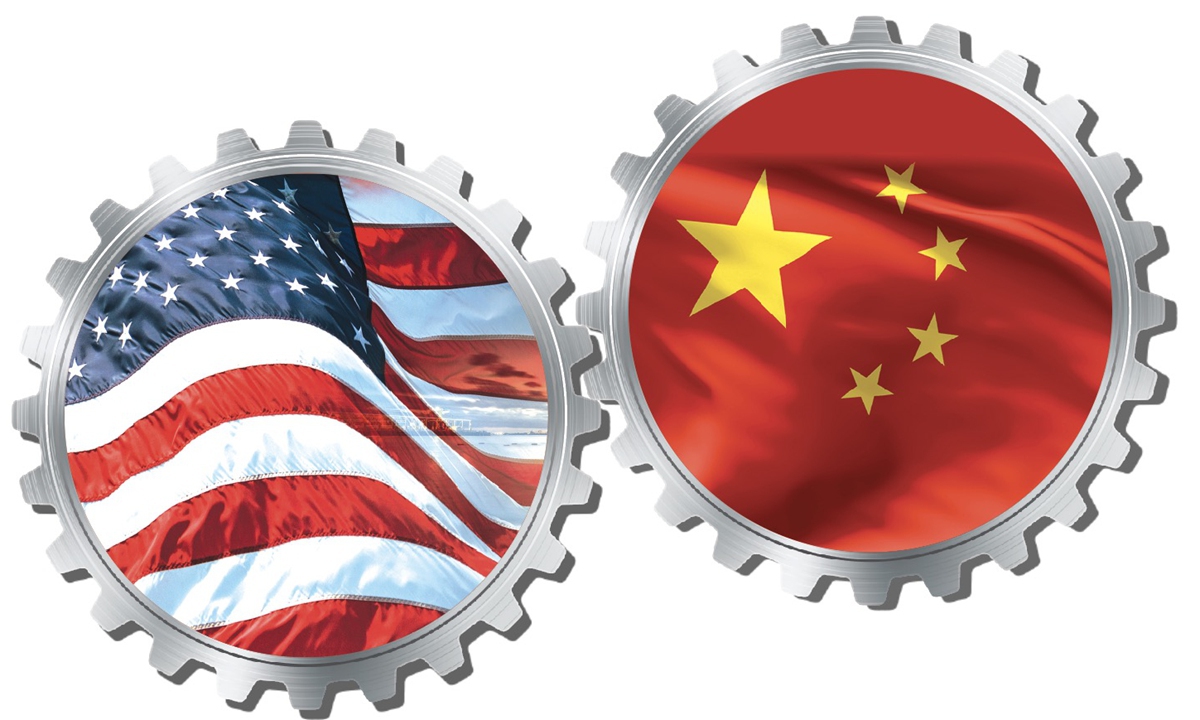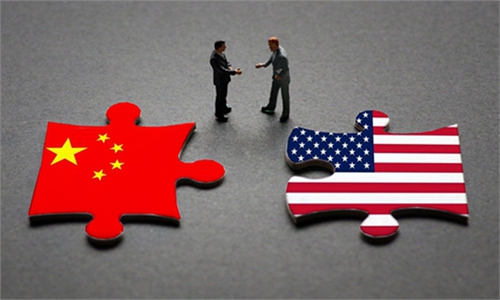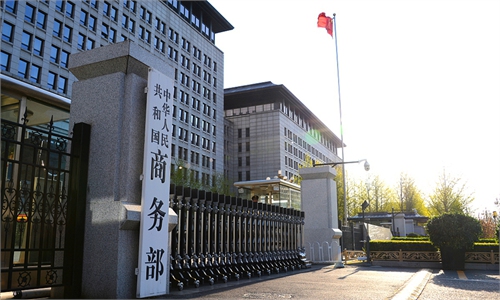Only by bidding farewell to zero-sum game, can Washington overcome strategic anxiety: Global Times editorial

China-US Photo: VCG
On January 13, outgoing US President Joe Biden delivered a speech. Unsurprisingly, he brought up China, stating that experts once expected China's economy to surpass America's, but China "will never surpass us." It appears that this fixation on "benchmarking" against China and viewing China as its "biggest strategic competitor" remains Washington's demon. However, in fact, only by bidding farewell to zero-sum games, can Washington get rid of its strategic anxiety.On the same day, the Biden administration announced export control measures related to artificial intelligence (AI), sparking immediate opposition and resistance from multiple parties, including the US semiconductor industry and the European Union. The strict prohibition on American companies exporting to certain countries, including China, hasn't created more development room for the US relevant industry. Just as the Semiconductor Industry Association (SIA) President and CEO John Neuffer bluntly said, this new rule, "rushed out without any meaningful input from industry," would cause unintended and lasting damage to America's economy and global competitiveness in semiconductors and AI.
In a post on its official website, Nvidia pointed out, "While cloaked in the guise of an 'anti-China' measure, these rules would do nothing to enhance US security." The "you lose, I win" mind-set of competition is incompatible with today's world and is bound to face setbacks on a practical level.
In an era of major power competition and expansion, some Western countries have adopted zero-sum thinking to guide their foreign policies, bringing conflict and the pain of war to the world and leaving behind profound historical lessons. Today, relationships between countries have long shifted from "you lose, I win" to "win-win cooperation." Various global issues have transcended national borders and capabilities, requiring all parties to work together to address them. The development between nations is not a zero-sum game of life and death like in a Roman gladiatorial arena; viewing great power relations through this lens will only lead to confrontation and crises. On the contrary, the diversity of cultural backgrounds and development paths provides multiple possibilities for the progress of human civilization.
It is with a deep understanding of this reality that China has proposed the concept of building a community with a shared future for mankind and three major global initiatives. It is necessary to emphasize that the driving force behind China's development lies in surpassing itself, not replacing the US. China's development begins and ends with meeting its people's growing needs for a better life, not engaging in a "you lose, I win" competition with the US. China emphasizes a civilizational perspective of equality, mutual learning, dialogue and inclusiveness. It is building a bridge of cooperation among different countries and civilizations worldwide, providing stability and certainty to the world.
Washington's suppression of China's development with a Cold War mentality deviates from the fundamental interests of various sectors of the American economy and society, as well as those of countries around the world. Over the past few decades, the success of US companies like Qualcomm and Apple has largely been driven by Chinese demand and consumption. When it comes to the question of "how to correctly deal with China's development," Washington has repeatedly chosen the wrong answer.
Regardless of whether it concerns China's cranes, drones, electric vehicles, chip manufacturing, or artificial intelligence, the US consistently attempts to define China's progress through "overstretching the concept of security" or hyping "overcapacity," and to curb China's development with "military-related blacklists" or "punitive tariffs." However, China's progress and development are unstoppable.
As China's importance in the global supply chain continues to grow, Washington's sanctions on a few Chinese companies actually impact all partners along the entire supply chain.
In the current situation, the common interests of China and the US have not diminished; in fact, they have increased. This sentiment is shared by the vast majority of businesses and people from both sides and serves as an important foundation for mutual cooperation. In 2024, Tesla's sales in China exceeded 657,000 units, marking a year-on-year increase of 8.8 percent and setting a new record; Starbucks added 290 new stores in the Chinese mainland in the fourth quarter of last year, entering 78 county-level markets... As of 2024, there are as many as 73,000 US enterprises established in China, with total investments exceeding $1.2 trillion, covering various fields such as electronics, automotive manufacturing, consumer goods, and financial services. If Washington could let go of its obsession with "competing with China," the potential for cooperation between the two countries could be even greater.
Regardless of any changes occurring in the US, China will continue to handle China-US relations based on the three principles of mutual respect, peaceful coexistence, and win-win cooperation. The sense of anxiety in Washington is not caused by China, but rather by itself. To overcome this anxiety, it is crucial to acknowledge and accept the rights to existence and development of over 1.4 billion people in China, and to replace the stubborn mind-set of maintaining a unilateral hegemonic system with confidence in the potential for cooperation and mutual benefit between China and the US.



